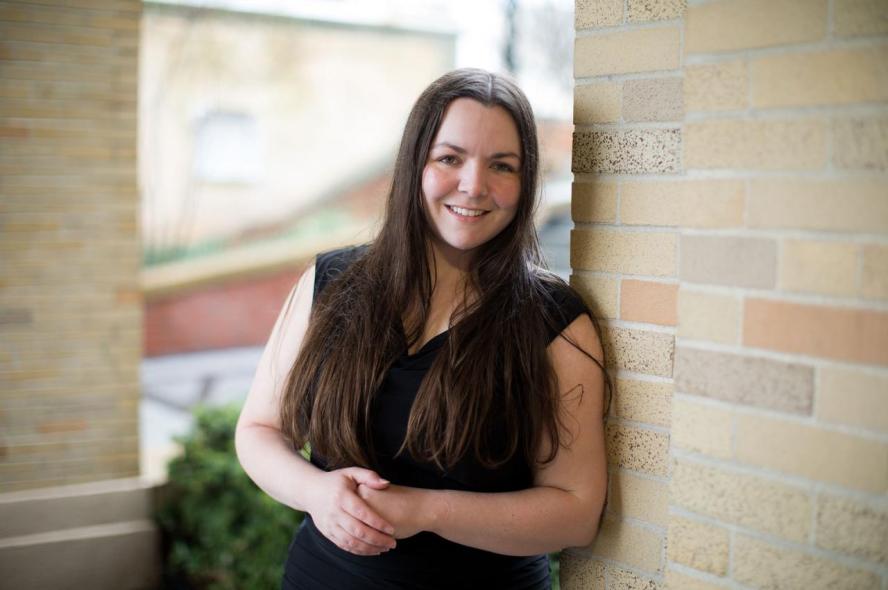-
About
- Departments & Offices
-
Academics
- Physician Assistant
- Special Master’s (MBS)
-
Admissions & Financial Aid
- Tuition & Fees
-
Student Experience
-
- Student Resources by Program
- Academic & Student Support
- Wellness & Wellbeing
- Student Life
- Events & Traditions
-
-
Research
- Research Labs & Centers
-
Local & Global Engagement
- Global Health Programs
- Community Engagement
Kathrine Mansfield, MPH22
Degree: Master of Public Health

Home:
The Northeast Kingdom of Vermont. While I don't have the pleasure of living there now, it’s where I spent my childhood and where my heart remains.
What area of study within public health are you most passionate about?
My passion is prevention—specifically, prevention of adverse childhood experiences. I originally went to medical school and then left because of a family health emergency, and that emergency was probably exacerbated by adverse events, so my interest comes partly from personal experience. Even when I was headed to medical school, preventing those experiences is what I was interested in.
In what ways have you been able to foster that interest at Tufts?
There’s a great survey methods course here taught by Linda Neff, who works at the CDC. Creating a survey in that class allowed me to dig a bit deeper into where the gaps in the research are when it comes to the effects of adverse childhood experiences on the likelihood that those children will grow up and, for example, practice volunteerism or serve in politics. For individuals who experience significant challenges as children, the impact of those experiences on their social interactions as adults has not been studied as much as direct health outcomes, like heart disease.
I’m glad that Tufts supports us in creating a useful public health project as our master’s in public health capstone. For mine, I’ve been working on finding and filling the gaps for social service needs in a local community. We’re creating a survey that we’re administering to community leaders to get an idea of where they think there are gaps in resources people rely on—and how those gaps were affected during the pandemic. A lot of resources are great theoretically, but utilization rates are not what they could be, in part because they’re not well-publicized. We’re trying to break down barriers by making information about the programs readily available.
After graduation, I’ll be starting a job with the same organization for which I’ve been working on my capstone, as the group’s first on-staff epidemiologist. I’m excited to have landed this role, and I know I owe it partly to Professor Karen Errichetti, whose infectious passion for community engagement and assessment has profoundly shaped my approach to public health.
Your best piece of advice for people who aspire to do what you’re about to do?
Network! As someone who grew up in poverty, networking doesn’t come naturally to me; at times, it has seemed almost manipulative. But I’ve embraced that graduate school is partly about creating connections with people and building an understanding of what it means to have a career. At first, I didn’t realize that we'd have professors from so many different backgrounds. They are true mentors, many of whom are working additional jobs or coming from industry, or policy, or government. I’m grateful that I’ve been able to make genuine connections with my professors and so many other people, and that those connections are leading me towards the career that I want. I’ve discovered that Tufts is full of opportunities—you just have to take them.